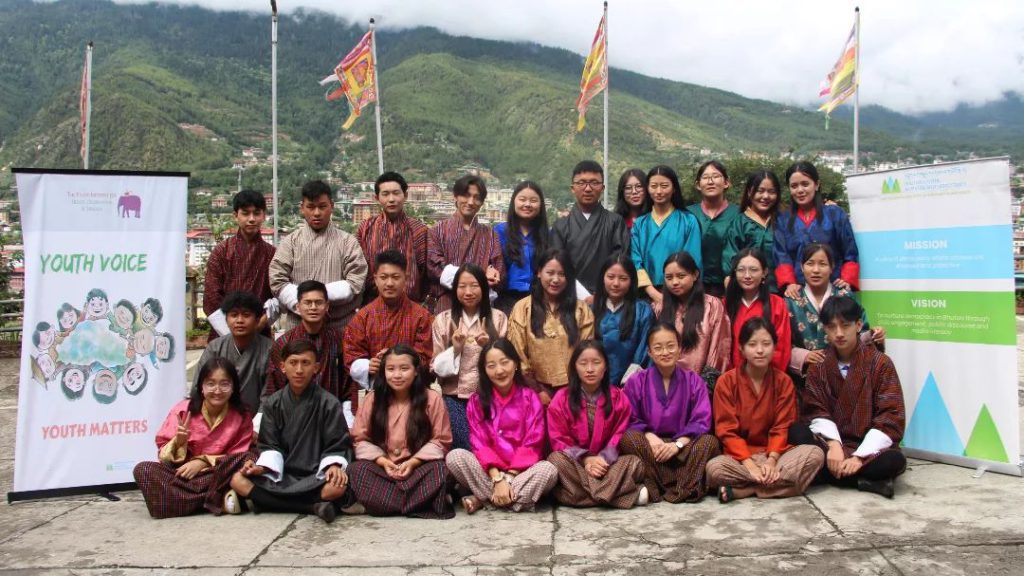 The 2022 winter youth initiative aimed to strengthen youths’ civic participation by empowering them with voice and agency. The objective of the project was to:
The 2022 winter youth initiative aimed to strengthen youths’ civic participation by empowering them with voice and agency. The objective of the project was to:
- Test the implementation of a Digital Citizen Engagement Platform that will source diverse citizen views on policy and legislative issues.
- Capacitate the youth with a deeper understanding of the issue (focus area) that is critical to generating constructive and meaningful responses.
It gathered 26 youths with diverse backgrounds from all over the country and generated 24 seed responses including graduates, to learn about climate change and brainstorm ideas for mitigation and adaptation to the global issue creating potential solutions for how Bhutan can address climate change.
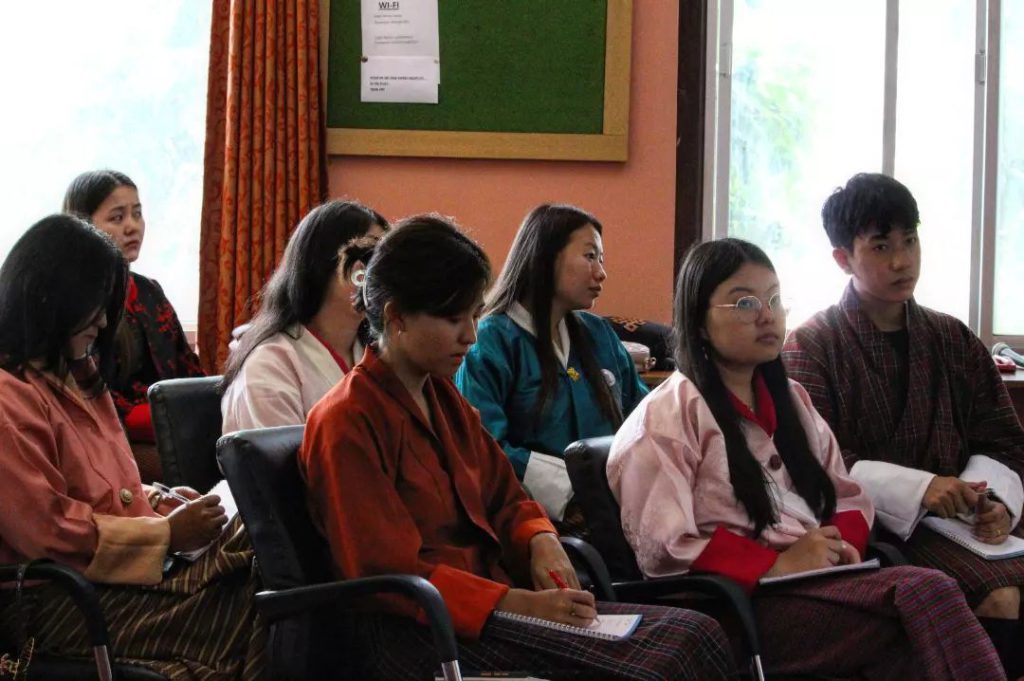
The Summer Youth Initiative camp commenced today with 30 participants from diverse backgrounds deliberating on the theme “How to balance economic development with environmental conservation?”
The first day started with analysing GNH as a means to achieve sustainable development, then delved into understanding facets of economic development as the speakers encouraged the participants to be critical when assessing this development paradox.
Over 5 days, an immersive learning experience will be created; the participants will have the opportunity to interact with various stakeholders, brainstorm on existing challenges, and discuss viable solutions to resolve these challenges.
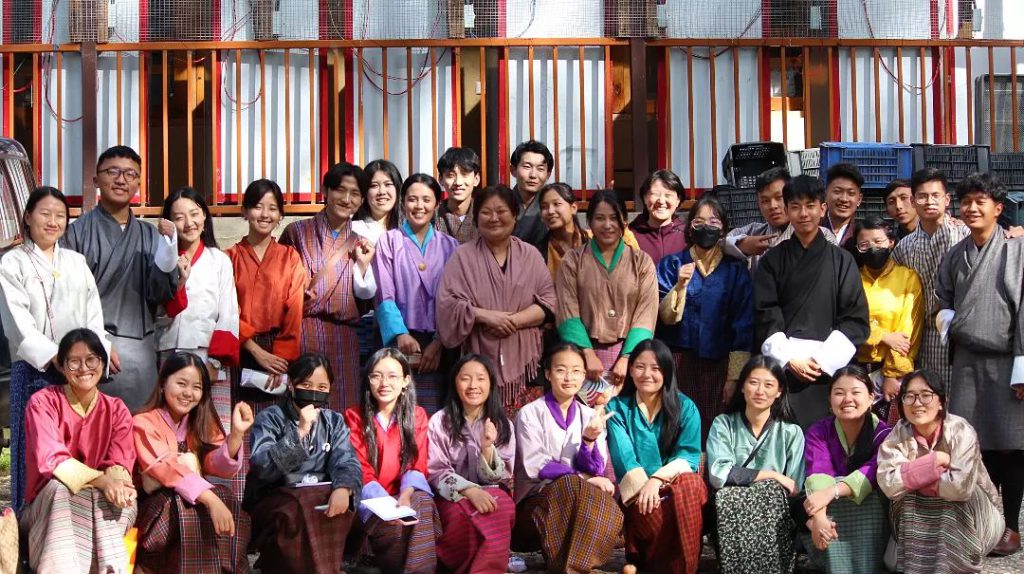 “In college, I did learn about urban development but rarely do we discuss persisting issues that limit the implementation of existing solutions to nurture a smart and green city in Bhutan”, shared a participant.
During the second and third days of the YI summer camp, with the opportunity to meet several representatives from agencies in the field, the participants drew on these different experiences to better understand the challenges and brainstorm opportunities in achieving a balanced economy that upholds environmental conservation.
The field trip to the Chuniding factory sparked discussion on the good practices when venturing into the food-producing business and also the need for sustainable practices in such business to ensure a holistic development approach.
“In college, I did learn about urban development but rarely do we discuss persisting issues that limit the implementation of existing solutions to nurture a smart and green city in Bhutan”, shared a participant.
During the second and third days of the YI summer camp, with the opportunity to meet several representatives from agencies in the field, the participants drew on these different experiences to better understand the challenges and brainstorm opportunities in achieving a balanced economy that upholds environmental conservation.
The field trip to the Chuniding factory sparked discussion on the good practices when venturing into the food-producing business and also the need for sustainable practices in such business to ensure a holistic development approach.
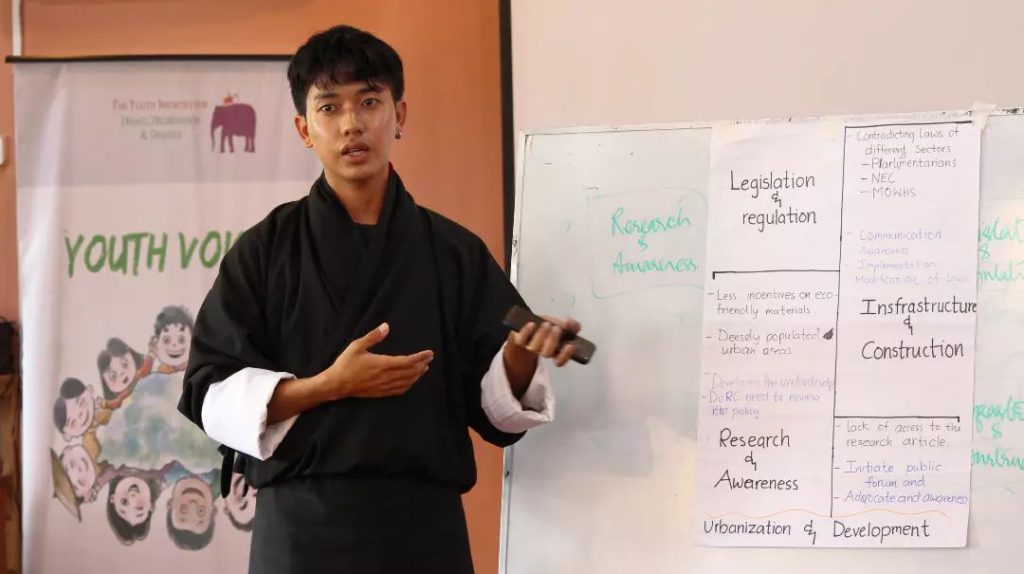
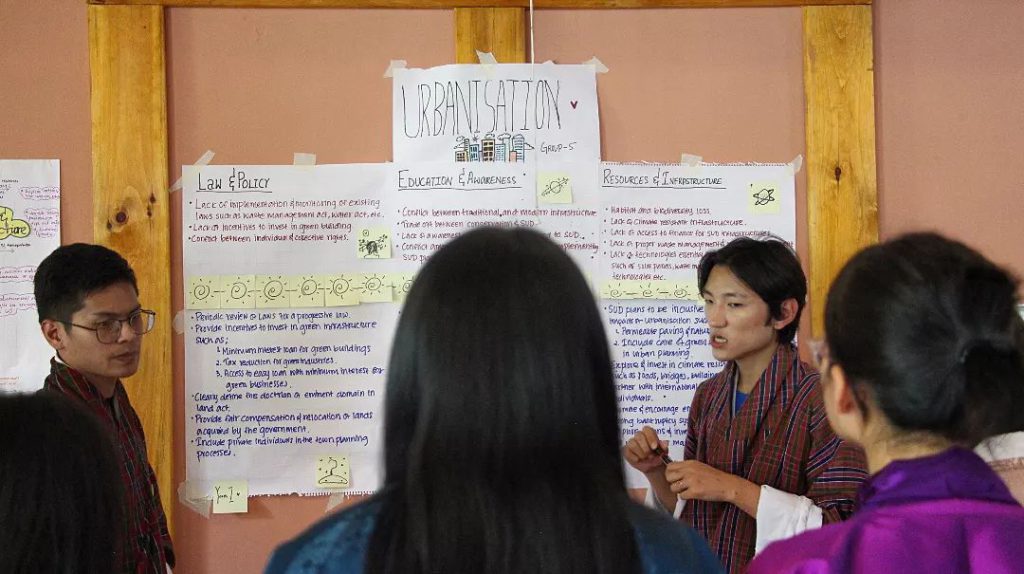 With the focus shifting to balancing food security with environment conservation and green financing, participants explored topics on public private partnership when pursuing sustainable development projects and encouraging agro eco-tourism. Then on the last day during the gallery walk the participants presented their findings on the three themes of urbanisation, industrialisation, and food production in relation to achieving a balanced economy.
Tshering Dendup, a student of JSW Law School expressed that it is refreshing to meet like-minded people who are interested in understanding more about the paradox of environmental conservation and economic development and that attending this camp made him reflect on the possibility of researching more on green finance once he joins college again.
The consolidated responses were divided under different themes generated from the youth camp which were uploaded to the Citizen Engagement Platform for nationwide polling.
With the focus shifting to balancing food security with environment conservation and green financing, participants explored topics on public private partnership when pursuing sustainable development projects and encouraging agro eco-tourism. Then on the last day during the gallery walk the participants presented their findings on the three themes of urbanisation, industrialisation, and food production in relation to achieving a balanced economy.
Tshering Dendup, a student of JSW Law School expressed that it is refreshing to meet like-minded people who are interested in understanding more about the paradox of environmental conservation and economic development and that attending this camp made him reflect on the possibility of researching more on green finance once he joins college again.
The consolidated responses were divided under different themes generated from the youth camp which were uploaded to the Citizen Engagement Platform for nationwide polling.
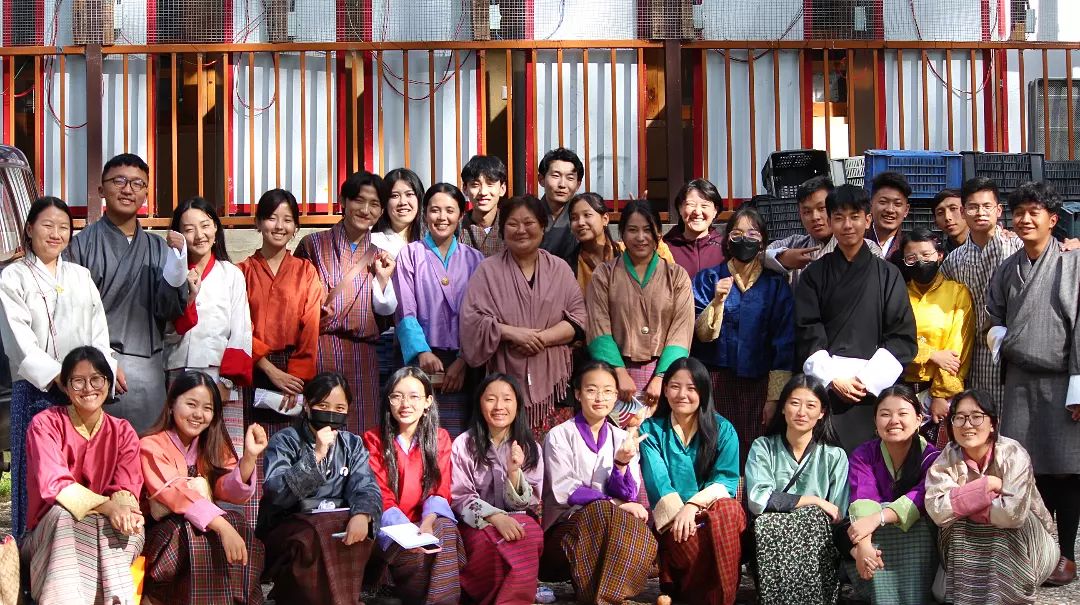
 The 2022 winter youth initiative aimed to strengthen youths’ civic participation by empowering them with voice and agency. The objective of the project was to:
The 2022 winter youth initiative aimed to strengthen youths’ civic participation by empowering them with voice and agency. The objective of the project was to:
 The Summer Youth Initiative camp commenced today with 30 participants from diverse backgrounds deliberating on the theme “How to balance economic development with environmental conservation?”
The first day started with analysing GNH as a means to achieve sustainable development, then delved into understanding facets of economic development as the speakers encouraged the participants to be critical when assessing this development paradox.
Over 5 days, an immersive learning experience will be created; the participants will have the opportunity to interact with various stakeholders, brainstorm on existing challenges, and discuss viable solutions to resolve these challenges.
The Summer Youth Initiative camp commenced today with 30 participants from diverse backgrounds deliberating on the theme “How to balance economic development with environmental conservation?”
The first day started with analysing GNH as a means to achieve sustainable development, then delved into understanding facets of economic development as the speakers encouraged the participants to be critical when assessing this development paradox.
Over 5 days, an immersive learning experience will be created; the participants will have the opportunity to interact with various stakeholders, brainstorm on existing challenges, and discuss viable solutions to resolve these challenges.  “In college, I did learn about urban development but rarely do we discuss persisting issues that limit the implementation of existing solutions to nurture a smart and green city in Bhutan”, shared a participant.
During the second and third days of the YI summer camp, with the opportunity to meet several representatives from agencies in the field, the participants drew on these different experiences to better understand the challenges and brainstorm opportunities in achieving a balanced economy that upholds environmental conservation.
The field trip to the Chuniding factory sparked discussion on the good practices when venturing into the food-producing business and also the need for sustainable practices in such business to ensure a holistic development approach.
“In college, I did learn about urban development but rarely do we discuss persisting issues that limit the implementation of existing solutions to nurture a smart and green city in Bhutan”, shared a participant.
During the second and third days of the YI summer camp, with the opportunity to meet several representatives from agencies in the field, the participants drew on these different experiences to better understand the challenges and brainstorm opportunities in achieving a balanced economy that upholds environmental conservation.
The field trip to the Chuniding factory sparked discussion on the good practices when venturing into the food-producing business and also the need for sustainable practices in such business to ensure a holistic development approach.

 With the focus shifting to balancing food security with environment conservation and green financing, participants explored topics on public private partnership when pursuing sustainable development projects and encouraging agro eco-tourism. Then on the last day during the gallery walk the participants presented their findings on the three themes of urbanisation, industrialisation, and food production in relation to achieving a balanced economy.
Tshering Dendup, a student of JSW Law School expressed that it is refreshing to meet like-minded people who are interested in understanding more about the paradox of environmental conservation and economic development and that attending this camp made him reflect on the possibility of researching more on green finance once he joins college again.
The consolidated responses were divided under different themes generated from the youth camp which were uploaded to the Citizen Engagement Platform for nationwide polling.
With the focus shifting to balancing food security with environment conservation and green financing, participants explored topics on public private partnership when pursuing sustainable development projects and encouraging agro eco-tourism. Then on the last day during the gallery walk the participants presented their findings on the three themes of urbanisation, industrialisation, and food production in relation to achieving a balanced economy.
Tshering Dendup, a student of JSW Law School expressed that it is refreshing to meet like-minded people who are interested in understanding more about the paradox of environmental conservation and economic development and that attending this camp made him reflect on the possibility of researching more on green finance once he joins college again.
The consolidated responses were divided under different themes generated from the youth camp which were uploaded to the Citizen Engagement Platform for nationwide polling.